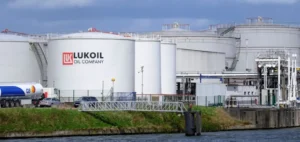Oil prices continued to decline on Wednesday, weighed down by U.S. crude inventories data that showed a build-up, coupled with disappointed expectations of an easing of Covid restrictions in China.
At around 10:45 GMT (11:45 a.m. in Paris) on Friday, a barrel of North Sea Brent crude for delivery in January 2023 was down 0.67% at $94.72.
A barrel of U.S. West Texas Intermediate (WTI) for December delivery was down 0.78 percent at $88.22.
“Oil prices are down slightly again on Wednesday, after falling about 3% the day before,” commented Craig Erlam, analyst at Oanda.
After betting on oil “in anticipation of an early reopening in China,” investors are turning away as the country does not seem to be backing away from its strict zero Covid policy that limits Chinese demand, says Stephen Innes, an analyst at Spi.
China is a major consumer and importer of crude oil. With the scenario of a Chinese recovery “pushed back, and with U.S. inventory data considerably fleshed out, implying a decline in U.S. demand,” recession fears “are back in full force,” he continued.
The American Petroleum Institute (API), a trade association, estimated Tuesday night that crude oil inventories rose by about 5.6 million barrels last week, and gasoline inventories by 2.6 million barrels.
The market is now awaiting the release of the U.S. inventory data by the U.S. Energy Information Agency (EIA), which is considered more reliable than that of the API.
“If the large inventory build-up is confirmed by the EIA (…), it will be interesting to see if this generates a larger reaction in the markets” by deepening crude losses, notes Craig Erlam.
Analysts expect a smaller increase of 250,000 barrels in commercial crude reserves, but a drop of 1.45 million barrels for gasoline, according to the median of a consensus compiled by Bloomberg.






















